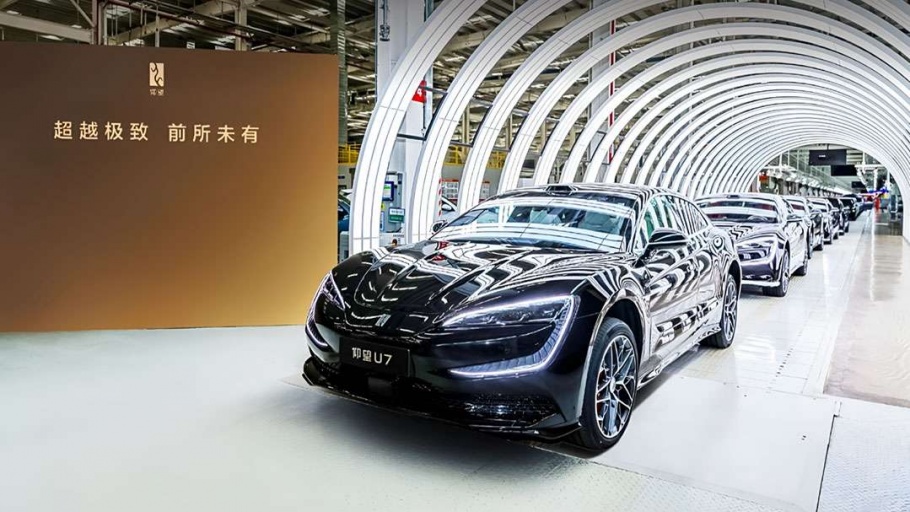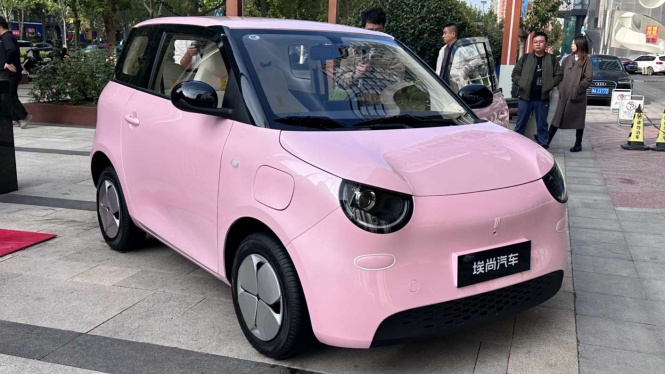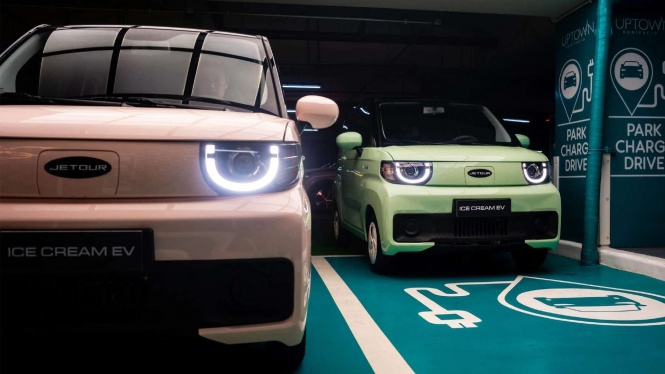VinFast's Role in Supporting the Clean Mobility Transition
25 October 2025, 17:00 WIB
To survive the pressure, electric vehicle incentives in China are proposed to be phased out.

By Satrio Adhy
KatadataOTO – Providing incentives for the purchase of electric cars is not only done in Indonesia. However, several other countries have implemented similar measures, such as China.
However, recently, the China Association of Automobile Manufacturers (CAAM) made a proposal regarding this relief.
"Chen Shihua, Secretary General of CAAM, asked the Chinese government to impose a three percent purchase tax on NEVs for 2026," wrote a Cnevpost report on Sunday (26/10).
It was further mentioned that Chen Shihua also proposed that electric car purchases in 2027 be subject to a seven percent tax.

According to Chen, this is being done so that the Electric Vehicle (EV) industry in China can continue to survive.
"The Chinese automotive industry continues to face slowing domestic demand and sustained inventory pressures that require careful management," they continued.
In addition, electric four-wheeled vehicle manufacturers from China also face continued pressure on industry profitability.
The threat of price wars and geopolitical tensions are also seen as capable of disrupting supply chain stability.
Furthermore, the EV industry in the Land of the Bamboo Curtain is also still facing significant operational pressures. Thus, the government is being urged to make a decision soon.
For your information, in recent years, China has implemented several policies to stimulate the electric car industry.
For example, by providing purchase subsidies and tax reductions. This has been the main driver of the rapid increase in recent times.
Meanwhile, in June 2023, the Chinese government expressed its intention to extend the EV purchase tax incentive for the next four years.
On the other hand, the Chinese government has just announced new technical rules for the distribution of incentives or subsidies for the 2026-2027 period.
In this new policy, they have made a number of adjustments. Specifically, a number of requirements for hybrid-powered cars.
It is stated that Plug-in Hybrid Electric Vehicles (PHEVs) are required to have a minimum pure electric range of 100 kilometers.

The amount above is an increase from the previous requirement which only mandated a range of about 43 kilometers.
In addition, fuel consumption is set at less than 70 percent of the standard limit for vehicles weighing under 2,510 kg.
Furthermore, the fuel consumption for hybrid cars weighing 2,510 kg or more is only allowed to be less than 75 percent of the specified limit.
1
2
3
4
5
Related Articles
25 October 2025, 17:00 WIB
25 October 2025, 07:00 WIB
24 October 2025, 21:00 WIB
24 October 2025, 13:00 WIB
23 October 2025, 14:00 WIB
Latest
26 October 2025, 15:00 WIB
In addition to ethanol in gasoline, the government will boost the use of B50 biodiesel blend next year.
26 October 2025, 10:10 WIB
The expansion of the 10 percent ethanol mandate to 15 percent is drawing protests in the United States, here's why.
26 October 2025, 07:15 WIB
Atta Halilintar has a fairly diverse vehicle collection, and some of them have been modified.
25 October 2025, 19:00 WIB
Chery Tiggo Cross CSH has received a positive response from consumers, with deliveries commencing to the first 1,000 customers.
25 October 2025, 17:00 WIB
Vinfast in Indonesia continues to develop its business lines to support the government in realizing clean energy.
25 October 2025, 09:00 WIB
Kakorlantas is committed to strengthening the presence of ETLE throughout Indonesia, especially on the island of Java.
25 October 2025, 09:00 WIB
Three students successfully won awards at AHM Best Student 2025 for their environmental innovations.
25 October 2025, 07:00 WIB
To pamper consumers in the country, Changan plans to introduce the Deepal S05 REEV variant next year.